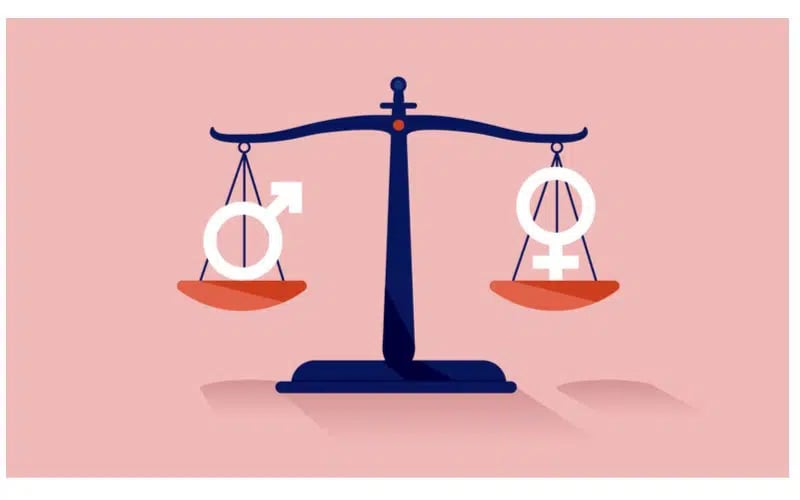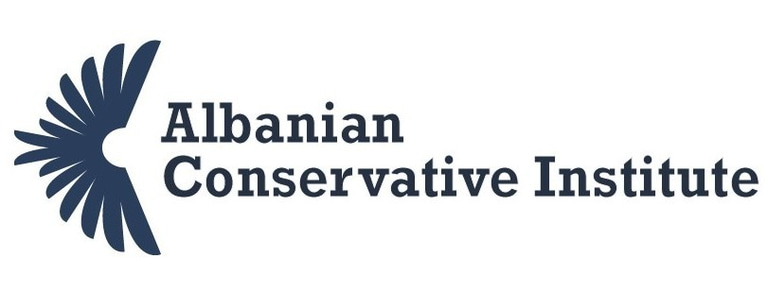Deklaratë e Institutit Konservator Shqiptar mbi projektligjin për “Barazinë Gjinore”
Statement of the Albanian Conservative Institute on the Draft Law on “Gender Equality” (adjacent in English)
Instituti Konservator Shqiptar - ACI
9/18/20255 min read


Instituti Konservator Shqiptar shpreh shqetësimin e thellë për projektligjin e ri “Për Barazinë Gjinore”, i cili propozon përfshirjen e koncepteve si “identiteti gjinor” dhe “shprehja gjinore” si kategori të mbrojtura ligjërisht. Ndërsa qëllimi për të luftuar diskriminimin dhe për të garantuar trajtim të barabartë për çdo qytetar është i drejtë dhe i domosdoshëm, mënyra se si ky projektligj është hartuar ngre probleme të mëdha ligjore, shoqërore dhe morale.
Së pari, projekti tenton të zëvendësojë kuptimin biologjik të gjinisë me një koncept tërësisht subjektiv dhe fluid. Biologjia është reale, e matshme dhe e pandryshueshme. Seksualiteti njerëzor bazohet mbi kromozomet: XX për femra dhe XY për meshkuj dhe kjo është diçka që nuk ndryshohet dot. Siç kanë theksuar shumë zëra autoritativë në këtë fushë, askush nuk mund të “zgjedhë” ose “ndryshojë” gjininë e vet në nivel biologjik. Lidhja mes seksit biologjik dhe rolit shoqëror nuk mund të shfuqizohet me ligj. Një kornizë ligjore që mohon këtë realitet, do të krijojë konfuzion institucional dhe shoqëror, jo barazi reale.
Identiteti gjinor bazohet te ndjenja personale. Por ndjenja nuk ka peshë shkencore e juridike. Nëse ligji e vendos gjininë si çështje ndjenje, atëherë nuk ka kufi: një person mund të pretendojë çdo lloj “gjinie” dhe të kërkojë të njihet ligjërisht. Kjo krijon absurditete në sistemin e arsimit, sportit, burgjeve apo hapësirave të tjera publike.
Së dyti, ky ligj cënon të drejtën e fjalës dhe të mendimit ndryshe. Nëse identiteti gjinor subjektiv kthehet në kategori ligjore absolute, çdo kundërshtim apo mospranim i tij mund të penalizohet si diskriminim. Ky është një precedent i rrezikshëm që mund të shkelë lirinë e shprehjes dhe pluralizmin, duke imponuar një ideologji mbi të gjithë shoqërinë.
Së treti, projektligji rrezikon të dobësojë themelet e familjes dhe të rolit të saj në shoqëri. Nëse gjinia shihet si kategori e ndryshueshme dhe e paqëndrueshme, kjo hap derën për të relativizuar institucionin e martesës, ndarjen e roleve natyrore të prindërve dhe procesin e rritjes së fëmijëve në një mjedis të shëndetshëm. Një qasje e tillë nuk promovon barazi, por një inxhinjeri shoqërore që shpërfill traditën, natyrën dhe interesin afatgjatë të fëmijëve dhe familjes.
Së katërti, mungesa e saktësisë ligjore do të krijojë probleme në zbatimin praktik. Termat e paqartë si “shprehja gjinore” nuk kanë përcaktim të unifikuar juridik, dhe mund të prodhojnë situata absurde apo konflikte ligjore që cenojnë funksionimin e institucioneve publike dhe private. Për shembull, nëse burrat që identifikohen si gra futen në sportet e femrave, ata kanë përparësi biologjike (forcë, muskulaturë, kapacitet mushkërie).
Kjo shkatërron konkurrencën e ndershme dhe u mohon grave arritjet e tyre. Në thelb diskriminon negativisht gratë.
Shembuj të tillë kanë ndodhur tashmë në SHBA dhe kanë shkaktuar reagime të forta.
Ne besojmë se Shqipëria ka nevojë për ligje që mbrojnë individin nga diskriminimi, por që gjithashtu mbështeten në realitetin biologjik dhe kulturor të shoqërisë sonë. Një shoqëri e shëndetshme ndërtohet mbi themele të forta: mbi familjen, traditën, dhe parimet themelore të natyrës njerëzore.
Rishikimi i ligjit për barazi gjinore VETËM në funksion të agjendës dhe interesave të një grupi të caktuar është në vetvete një diskriminim i rëndë për gratë dhe vajzat në vend, dhe një devijim nga rruga që duhet ndjekur për të luftuar pabarazitë gjinore që para së gjithash i prekin ato.
Instituti Konservator Shqiptar qëndron në mënyrë të palëkundur për lirinë e çdo individi, jemi kundër çdo forme diskriminimi, por gjithashtu jemi për mbrojtjen e familjes, traditës dhe parimeve bazë të zhvillimit të një shoqërie të shëndetshme.
The Albanian Conservative Institute expresses deep concern regarding the new draft law on “Gender Equality,” which proposes the inclusion of concepts such as “gender identity” and “gender expression” as legally protected categories. While the aim of combating discrimination and ensuring equal treatment for every citizen is just and necessary, the way this draft law is formulated raises significant legal, social, and moral issues.
First, the draft attempts to replace the biological understanding of sex with an entirely subjective and fluid concept. Biology is real, measurable, and immutable. Human sexuality is based on chromosomes: XX for females and XY for males, and this is an unchangeable fact. As many authoritative voices in this field have emphasized, no one can “choose” or “change” their biological sex. The connection between biological sex and social roles cannot be abolished by law. A legal framework that denies this reality will create institutional and social confusion, not genuine equality.
Gender identity is based on personal feelings. However, feelings lack scientific or legal weight. If the law defines gender as a matter of feeling, there are no limits: a person could claim any “gender” and demand legal recognition. This creates absurdities in systems such as education, sports, prisons, or other public spaces.
Second, this law undermines the right to freedom of speech and dissenting opinions. If subjective gender identity becomes an absolute legal category, any opposition or non-acceptance of it could be penalized as discrimination. This sets a dangerous precedent that could violate freedom of expression and pluralism, imposing an ideology on society as a whole.
Third, the draft law risks weakening the foundations of the family and its role in society. If gender is viewed as a changeable and unstable category, this opens the door to relativizing the institution of marriage, the natural roles of parents, and the process of raising children in a healthy environment. Such an approach does not promote equality but rather a form of social engineering that disregards tradition, nature, and the long-term interests of children and families.
Fourth, the lack of legal precision will create practical implementation problems. Vague terms like “gender expression” lack a unified legal definition and could lead to absurd situations or legal conflicts that undermine the functioning of public and private institutions. For example, if men who identify as women are allowed to compete in women’s sports, they have biological advantages (strength, muscle mass, lung capacity). This destroys fair competition and denies women their achievements, ultimately discriminating against them. Such cases have already occurred in the United States and have sparked strong reactions.
We believe that Albania needs laws that protect individuals from discrimination while also being grounded in the biological and cultural reality of our society. A healthy society is built on strong foundations: the family, tradition, and the fundamental principles of human nature.
Revising the gender equality law solely to serve the agenda and interests of a specific group is itself a severe form of discrimination against women and girls in the country and a deviation from the path needed to address the gender inequalities that primarily affect them.
The Albanian Conservative Institute stands unwaveringly for the freedom of every individual and against all forms of discrimination, but we also advocate for the protection of the family, tradition, and the basic principles of a healthy society’s development.
